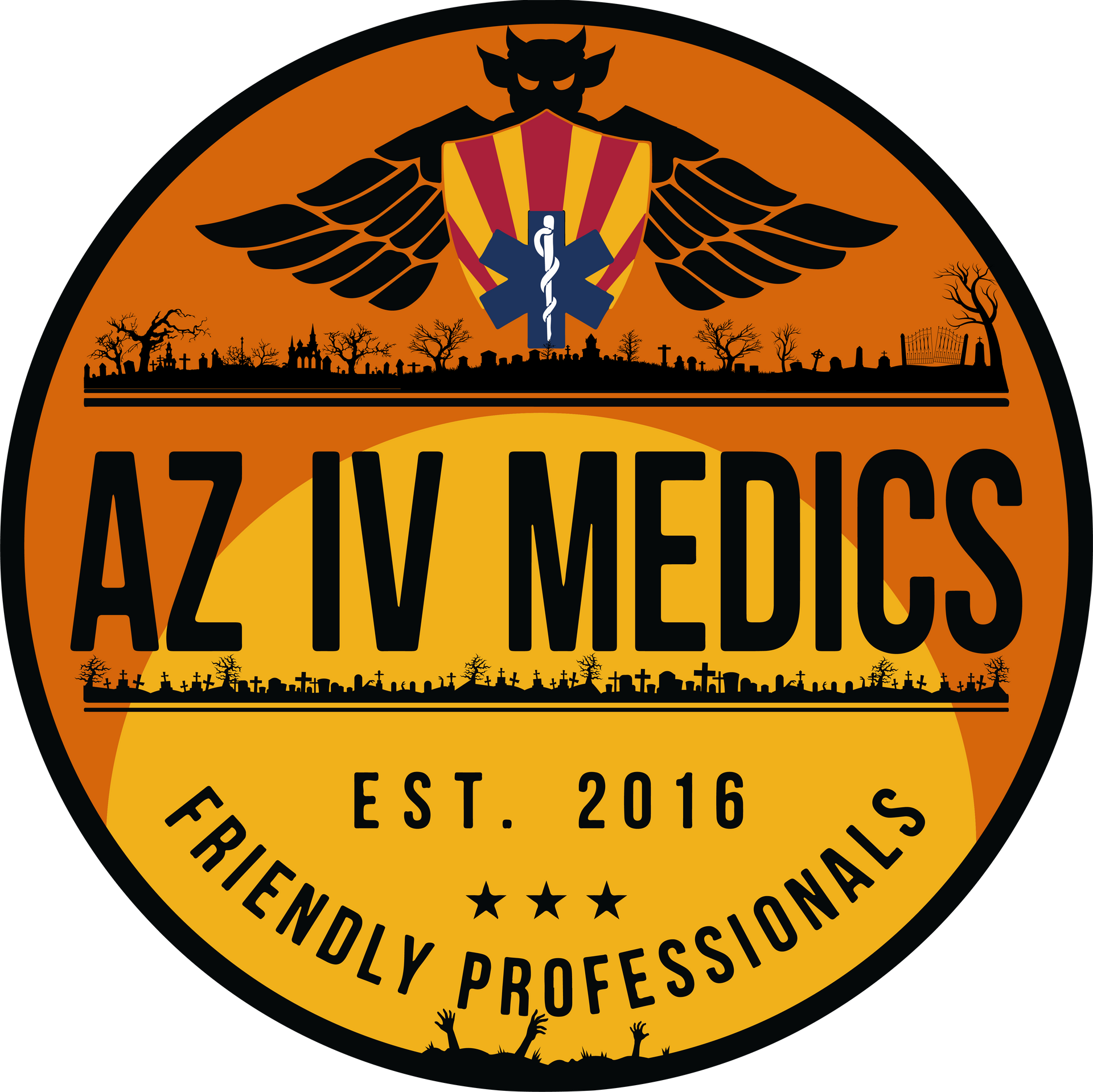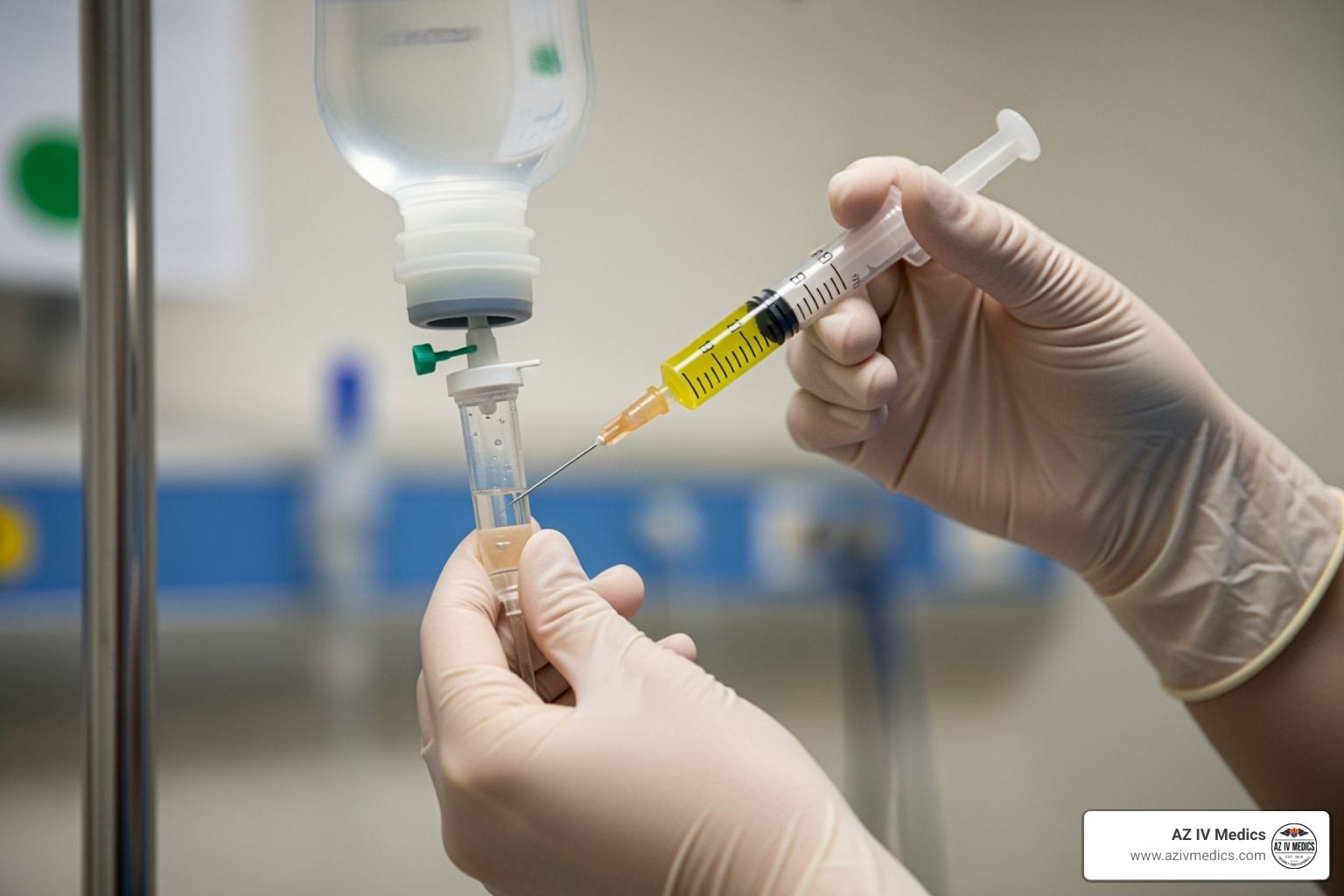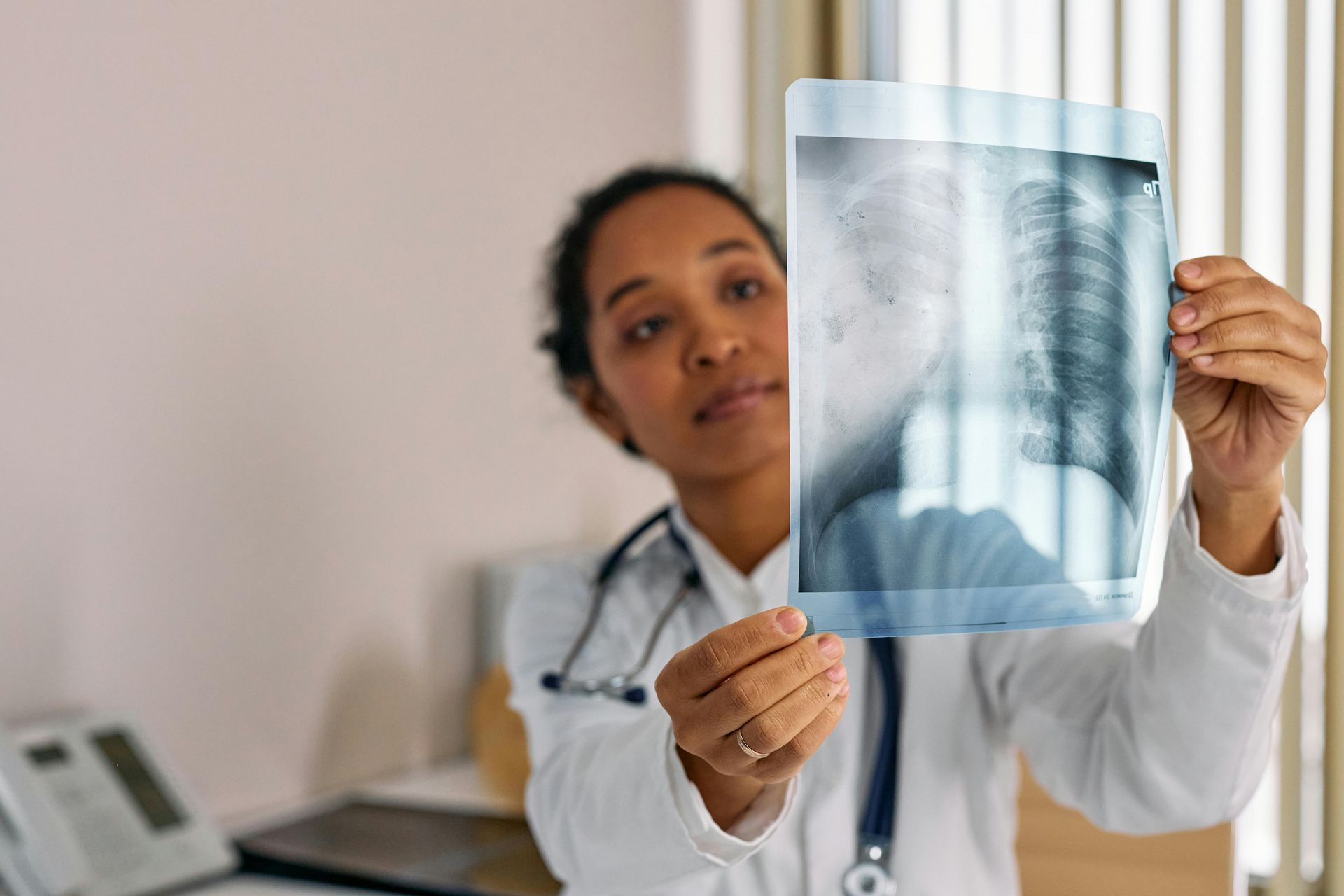How to Cure Severe Dehydration Fast With IV Hydration Therapy

Medically reviewed by Micaela Strevay, FNP-C, PMHNP-BC
Table of Contents

Dehydration is no joke. Even though we try our best to stay hydrated, sometimes dehydration can sneak up on us, leaving us at risk of getting into serious trouble. Dehydration can quickly go from mild to severe? It’s crucial to know the signs and when to seek help. Let’s explore how to recognize severe dehydration and what steps to take to treat it.
Understanding Severe Dehydration:
Severe dehydration isn’t just feeling a little thirsty—it’s your body screaming for help. It happens when your body loses too much fluid, putting your health at risk. This can happen to anyone, young or old, so it’s essential to know the signs and act fast.
Symptoms of Severe Dehydration:
Severe dehydration comes with a laundry list of symptoms, both physical and cognitive. Feeling like you can’t quench your thirst no matter how much water you drink is a big red flag. Your body might stop sweating, leading to overheating and dizziness. Sunken eyes and a rapid heartbeat are also signs that your body is in distress.
For infants and young children, it’s crucial to keep an eye out for fewer wet diapers and a sunken soft spot on the top of their head. If they’re crying without tears, it’s time to act fast.
Complications of Severe Dehydration:
Ignoring severe dehydration can lead to serious problems. In the short term, you might experience heat-related illnesses like heatstroke or bladder and kidney issues. Long-term dehydration can damage your kidneys and even lead to shock—a life-threatening condition where your organs don’t get enough oxygen.
Prevention of Severe Dehydration:
The best way to deal with severe dehydration is to prevent it from happening in the first place. Drink water regularly, especially when it’s hot or you’re exercising. Keep an eye out for early signs of dehydration, like thirst and fatigue, and act fast to nip it in the bud.
If you’re at a higher risk of dehydration—like if you’re older or have a chronic illness—be extra vigilant about staying hydrated.
Who is At Risk For Dehydration?
Dehydration can happen to anyone, but some people are more at risk than others. Let’s break it down.
- Older Adults: As we get older, our bodies might not signal thirst as effectively, and kidney function can decrease. Plus, older adults might not drink enough water because they forget or have mobility issues.
- Babies and Young Children: Babies have smaller bodies, so they can get dehydrated quickly, especially if they're vomiting or have diarrhea. They can't tell us when they're thirsty, so it's essential to keep an eye on their fluid intake.
- Athletes: When we exercise, we sweat, which is our body's way of cooling down. But if we don't drink enough water to replace what we lose through sweat, we can become dehydrated, especially during intense workouts, at high altitudes, or in hot weather.
- People with Chronic Illnesses: Conditions like diabetes, kidney disease, and certain infections can increase the risk of dehydration. Medications for these illnesses can also affect how much water our bodies retain.
- People with Digestive Issues: If you have frequent diarrhea or vomiting from conditions like gastroenteritis or irritable bowel syndrome (IBS), you're losing fluids and electrolytes fast, putting you at risk of dehydration.
- People Living in Hot Climates: When it's hot outside, we sweat more to cool off. But if we're not drinking enough water to replace what we're losing, we can become dehydrated quickly.
- People with Limited Access to Water: In some situations, like during natural disasters or when traveling in remote areas, access to clean drinking water might be limited. This can increase the risk of dehydration if we're not careful to conserve water or find alternative sources.
Remember, staying hydrated is crucial for everyone, regardless of age or health status. If you or someone you know falls into one of these risk categories, it's essential to be proactive about drinking enough water and recognizing the signs of dehydration before it becomes severe.
When to Seek Medical Help:
Knowing when to seek medical help is crucial. If you or someone you know is experiencing extreme thirst, confusion, lack of sweating, rapid heartbeat and breathing, or sunken eyes, don’t wait—call your doctor right away. They can help get you back on track with intravenous fluids and close monitoring.
FAQ
How do you treat severe dehydration with IV fluids?
Severe dehydration is often treated with IV fluids, which are administered directly into the bloodstream to quickly replenish lost fluids and electrolytes.
What is the fastest way to cure severe dehydration?
The fastest way to cure severe dehydration is by receiving intravenous (IV) fluids, which hydrate the body rapidly and effectively.
What are 5 symptoms of severe dehydration?
Five symptoms of severe dehydration include extreme thirst, lack of sweating, rapid heartbeat, sunken eyes, and confusion or irritability.
What is the first aid for severe dehydration?
The first aid for severe dehydration involves seeking immediate medical help and administering fluids orally or through IV if available.
How would you treat a patient with severe dehydration?
Treating a patient with severe dehydration typically involves administering IV fluids, closely monitoring their vital signs, and addressing any underlying causes of dehydration.
What are the 4 ways to treat dehydration?
The four ways to treat dehydration are drinking fluids, consuming electrolyte-rich drinks or solutions, receiving intravenous (IV) fluids, and addressing any underlying medical conditions causing the dehydration.
Call Us to Help with a Mobile Dehydration IV
Severe dehydration is serious business, but it’s also preventable. By recognizing the signs and acting fast, you can keep yourself and your loved ones safe. Don’t wait until it’s too late—stay hydrated, stay healthy, and don’t hesitate to reach out for a mobile IV when you need it. Your body will thank you for it.
If you’re experiencing severe dehydration or have any concerns, don’t hesitate to reach out to AZ IV Medics at (623) 521-5034. Our team is here to help you stay hydrated and healthy.





